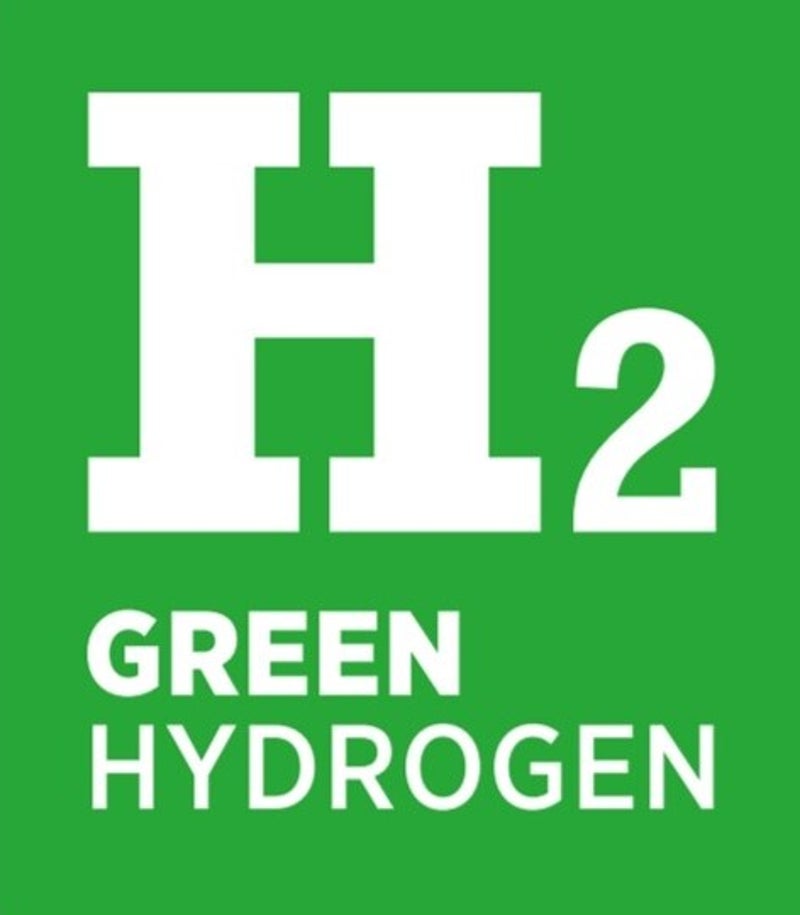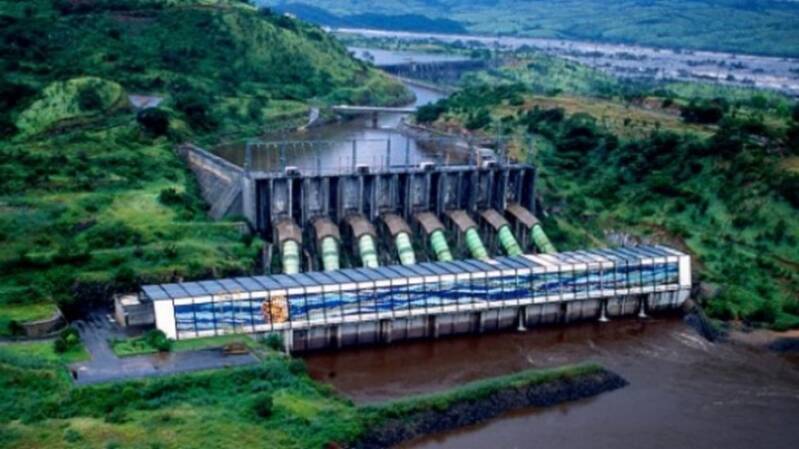An AU-EU Mandela-Schuman Community of Energy-Intensive Industries boosts world peace
The opportunity for a new African 'Mandela' and a new European 'Schuman'


An African-European community of energy-intensive industry can stabilise global warming, create world peace and reset a populist discourse on Migration from Africa
- 9 May 1950, the European Coal and Steel Community. On 9 May, the EU celebrates the signing of the ECSC Declaration of 9 May 1950. Robert Schuman, the French foreign minister, managed to convince five European countries France, West Germany, Italy, the Netherlands, Belgium and Luxembourg to pool their coal and steel, resulting in the EU and 74 years of lasting peace in Europe. (9 May EU-day)
- In 1990, in South Africa, Nelson "Madiba" Mandela was released after 27 years of imprisonment. He was not out for revenge but immediately negotiated with the government a black-and-white future for South Africa.
74 years ago, but very topical. Global warming and the asymmetry in prosperity between Africa and Europe threaten the dreams of Schuman and Mandela.
On 9 May 1950, Robert Schuman, the French Minister for Foreign Affairs, made a statement proposing the creation of a European Coal and Steel Community. Its members would pool their coal and steel production. Founded by France, West Germany, Italy, the Netherlands, Belgium and Luxembourg, this ECSC was the first in a series of supranational European institutions that would eventually lead to today's 'European Union'. Schuman wanted to avoid wars between Germany and France forever.
Today, growing asymmetry in prosperity between Europe and Africa threatens security on both continents. The energy-intensive industry is facing a huge push towards sustainability, it must become CO2 neutral. Africa is blessed with sixty percent of the world's solar energy production capacity and thirty-five percent of the global green hydrogen production capacity at €2/kg. Failure to meet climate targets threatens world peace.
Pooling abundant African green electricity and mineral resources with European knowledge of zero-emission, energy-intensive production and transport of key basic materials (1) saves 30% of C02 emissions both in Africa and in Europe; (2) prevents climate catastrophes; (3) prevents illegal migration from Africa; (4) encourages an aggiornamento of European industry; (5) makes Europe energy independent; (6) guarantees peace and prosperity for our grandchildren in Africa and Europe.
‘'We didn't have the same past, you Europe and we Africa, but we will have the same future'
Macky Sall, African Union Chair, EU-AU summit, 17/2/2022
'If you produce aluminium in Europe at a much higher electricity cost than in other parts of the world, what is the point of supporting these companies when you can produce cheaper elsewhere in the world'
Prosperity, peace and comfort also in Africa. Africa is blessed with sixty percent of the world's solar energy production capacity and thirty-five percent of the global green hydrogen production capacity at €2/kg. In 2050 one quarter of the world's total population will live in Africa, only seven percent in Europe. The "developed" world cannot deny the African citizen the right to strive for a similar comfort to that of his Western and Chinese counterparts (with "steel, cement, aluminium, glass, fertiliser, ethylene, ...data-centers, etc.).
Hence the importance for the entire planet to realise the energy-consuming production of basic materials, to which 25% of the world's population in Africa is also entitled, locally and emission-free.
Strict action against illegal economic migration
To safeguard prosperity and well-being in Europe, popular politicians are making passionate pleas for investments in nuclear energy (climate transition and preservation of industrial Europe) and to take strict action against illegal economic migration. However, the world is one big village: CO2 emissions don't stop at the border, and with climate catastrophes and a lack of decent jobs in factories and related services in Africa, there is a chance that in twenty years' time Europe will be flooded by an order of magnitude higher number of illegal migrants from Africa than today. Fences, push-backs, flights to Kigali, shelter in North and West Africa, solidarity spread throughout Europe do not bring any solace.
"Energy-intensive industries may no longer be profitable. Entire regions can be redesigned, depending on the availability of renewable energy." (Europe’s top banking supervisor warns of tougher times ahead - FT 18/3/2024).
- Africa is endowed with abundant green energy, a demographic dividend, the AfCFTA market of the future, and natural resources, but lacks the experience to transform its raw materials emission-free in energy-intensive processes into basic materials (steel, cement, aluminium, glass, ammonia, fertilizer, ...) that the world and Africa desperately need.
- A debt-ridden Europe does master the necessary know-how and technologies and needs new markets.
Hence the call for a new visionary Schuman and a new visionary Mandela, inspired by the benefits of the ECSC, to encourage the European Union and the African Union to pool their energy-intensive industries under a single “African-European Energy Intensive Industry Community”.
Africa, endowed with abundant green energy and climate-strategic natural resources



- African renewable energy: 60% global solar energy; 35% of global production capacity for green hydrogen
- Climate-strategic natural ressources (copper, cobalt, coltan, lithium, bauxite, plutonium, …)
- GRAND INGA hydropower project DRCongo = 35 electro-nuclear reactors (France: 56). In the DR Congo, the start of the GRAND INGA hydropower project is stalling. When completed GRAND INGA will have an electrical capacity equal to that of 35 nuclear reactors, GRAND INGA relies on standard-tested technologies, independent of solar and wind, with no CO2 emissions, no nuclear waste, no unknown costs for nuclear decommissioning, immune to tsunamis and military aggression. Political Europe that, together with BusinessEurope, urgently proposes to the DR Congo a Public-Private Partnership for the realisation of GRAND INGA: a first step towards the creation of an "African-European Community for Energy-Intensive Industries"?
9 May 2025: African-European Energy Intensive Industry Community
Over the course of decades of intensive use of fossil fuels and massive CO2 emissions, Europe transformed African natural resources into basic materials that mainly benefited Europe. Activities, however, that affected the entire planet, including Africa. Africa limited itself to the extraction and sale of its natural resources, with limited CO2 emissions, but above all without adding value and millions of jobs to its own mineral resources.
Inspired by the creation of the ECSC (European Coal and Steel Community), the African Union and the European Union propose, 75 years after the founding of the ECSC, that the entire European and African energy-intensive production of key basic materials should be brought under one common "African-European Energy Intensive Industry Community".
For the energy-intensive production of raw materials, Africa and Europe are jointly laying the foundations for climate-friendly economic development of both continents. A community that is open to the participation of all the countries of Africa and of Europe. This is the first stage in a robust, positive turn for the future of both young African citizens and ageing European counterparts.
An industrial community for mutual benefit
Africa is blessed with the mineral resources and abundant renewable energy that the world needs. Europe has a head start in the energy-intensive processing of African raw materials into basic products, which in the long term will be much more needed by Africa, which will account for 25 percent of the world's population by 2050. Europe is transferring experience in the advanced energy-intensive production of raw materials to Africa and gaining access to emission-free produced basic materials without having to rely on expensive imported green hydrogen. Europe's own solar and wind energy, sporadically increased by green hydrogen from a friendly continent, is sufficient for its own residential and light industrial use. In such an AU-EU manufacturing community, both continents win.
In Africa, in a second phase, the production of basic materials stimulates the general manufacturing industrialisation and the consequent creation of twelve million decent jobs per year. In this way, a new, enormous growth market is being created in Africa. Historical-cultural links and the industrial partnership between the neighbours Europe and Africa facilitates and reinforces African interest in European products; especially in innovative, more climate-friendly and more recyclable high-tech products and services with high added value. Particularly important for Europe is that a production solidarity with Africa – with one quarter of the total world population by 2050 - will prevent anti-Western resentments, conflicts, mass asylum applications and illegal economic migration.
Tasks
The "African-European Energy Intensive Industry Community" will be tasked with carrying out the following tasks as soon as possible:
- Encourage the EU to raise mass awareness among experienced European manufacturing companies, including SMEs, and financial institutions of the opportunities offered by industrial partnerships with industry peers in Africa, as a matter of the highest priority and urgency; a continent blessed with renewable energy down to the smallest villages;
- Encourage the AU to select regions in Africa with abundant renewable energy where Public-Private Partnerships of industrial investors and financiers from both Europe and Africa have a chance to produce green electricity and green hydrogen under competitive conditions, without endangering Africa's biodiversity;
- modernising the energy-intensive production of raw materials to minimise CO2 emissions along the entire value chain from raw material to use at the final destination;
- greening the transport sector;
- ensure that, unlike earlier colonial and post-colonial times, Europe does not force Africa to negotiate trade agreements with Leonine clauses in Europe's favour;
- the local processing, in the short chain, of African soil resources into competitive products and services; the only way (1) to create more decent jobs in Africa every year than demographic growth and to curb forced migration, (2) to create a new growth market, including for European products and services;
- accelerating the increase in GDP/capita in countries with extremely low GDP/capita to a level that prevents large numbers of citizens from seeking prospects in countries with significantly higher GNP/capita with, as in Western Europe, education, health, social services, social advancement, peace, security and decent comfort for the masses;
- ensure that, unlike earlier colonial and post-colonial times, Europe does not force Africa to negotiate trade agreements with Leonine clauses in Europe's favour;
- supply of energy-intensive raw materials on equal terms on the African and European markets as well as on those of the other acceding countries.
Geopolitics

’Hey Vladimir, I’ll be with you in a minute once I’ve finished with whoever this fellow is.’
The creation of a powerful AU-EU industrial community will be open to all countries from all over the world and ensure a level playing field for their energy-intensive industrialisation. It will lay the foundations for economic unification and genuine free trade.
Unlike an international cartel, which seeks to divide and exploit national markets through restrictive practices and maintain high profits, the proposed AU-EU industrial community, copied by other continents, will ensure free trade and global economic growth while respecting the Paris deadline of global warming of 1.5 C.
This shining AU-EU partnership will contribute to a global fusion of interests and a wider and deeper community that raises living standards and promotes peace and security among countries long divided by bloody divisions.
More. “Jobs”, that is what Africa is concerned about - Europe needs Africa more than the other way around - Africa’s advanced industrialisation saves the entire planet - EU governments only must promote the “other” Africa. That’s all - A thousand Africa-Europe SME partnerships drive Africa's industrialisation
This blog, inspired by Robert Schuman's declaration of 9 May 1950 for the creation of the ECSC, is the result of discussions between individual members of think tanks of EU employers' organisations but does not reflect their official position.
05/05/2024 - karel.uyttendaele{@}pandora.be - Karel Uyttendaele



Maak jouw eigen website met JouwWeb